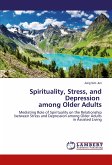The contagious joy of a party, the solemn silence in a church, the gloomy atmosphere of endless rows of identical houses in an ugly city. Through a criticism of the reification and psychologization that goes back to the very beginning of Western philosophy, Hermann Schmitz offers a fundamentally new theory of embodiment and feelings based on atmospheres, unstable but powerful phenomena that fill the "surfaceless spaces" of lived experience. This collection of essays, selected by Schmitz himself, offers a comprehensive portrait of his theory, both in its fundamental outlines and later progress.
Hinweis: Dieser Artikel kann nur an eine deutsche Lieferadresse ausgeliefert werden.
Hinweis: Dieser Artikel kann nur an eine deutsche Lieferadresse ausgeliefert werden.








